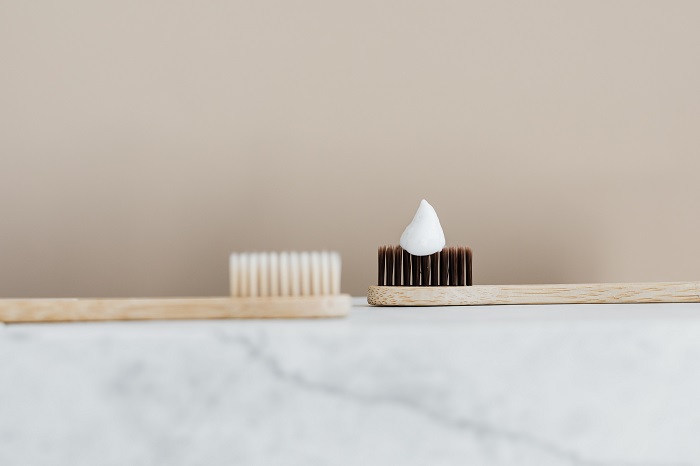Our mouth is one such part of our body where bacteria grow frequently. Therefore, it is one reason why we are advised to brush twice a day. One needs to maintain oral hygiene well because an imbalance in your oral health makes the bacteria grow and causes problems like – cavities, gingivitis, and tooth decay problems.
Plaque is one such dental problem where a clear and sticky film forms on the surface of your teeth. And it eventually gains color when you eat food. Technically, plague is composed of water, bacteria (70%), and polysaccharides and glycoproteins (30%).
What is the cause of plaque formation?
As we know, plaque forms due to two components water and bacteria, these bacteria grow during eating, drinking, and breathing.
The ideal pH for plaque to grow is between 6.7 to 8.3, whereas the pH of our mouth is between 6 and 7. Plaque is seen in teeth because they do not shed like other parts of the body, and over there, plaque can grow without disturbance. The only way to remove plaque is regular brushing and flossing. Though plaque is soft and if left undisturbed for some time, then it can harden up as our saliva contains minerals that help plaque deposit on our teeth.

When plaque hardens up, it turns into tartar which forms 24-72 hours after brushing. And tartar cannot be removed simply, as it gets stuck to your enamel, which can only be removed by dental tools.
Plaque also harms dental implants. But, what is a dental implant?
What is Dental Implant?
Dental Implants are mostly preferred to eliminate the need for oral hygiene and overcome tooth decay. The treatment is expensive, so people prefer to maintain the teeth rather than going for implants. The cost of performing dental implants depends on two factors- the surgical portion that costs $1500-$2500 and the non-surgical portion that costs $1000-$2000 per tooth.
How Plaque Affects the Implant?
Plaque leads to tooth decay and gum disease. Because it accumulates on the surface of your teeth, the acid so released breaks down your enamel and thereby allowing bacteria to enter the tooth. Here dental implants are a good alternative as they won’t let the teeth decay as natural teeth do. But implants aren’t always this good. They can lead to many oral problems.

When excessive plaque accumulates on your teeth and leads to gum inflammation and infection, then the chances of gingivitis are much. If not treated timely, it can spread to cementum, alveolar bone, and periodontal ligaments. After a dental implant one is safe from cementum, alveolar bone, and periodontal ligaments but not gum diseases. Most chances of Peri-implant mucositis and peri-implantitis are there during the dental implant. Peri-implant mucositis leads to the inflammation of the gum with no loss of bone. Peri-implantitis leads to the inflammation of soft tissue and bones also deteriorates.
Remember, take proper care of your oral health, maintain brushing, and floss daily. It’s best to eliminate plaque before the infection spreads and the need for implantation comes.
